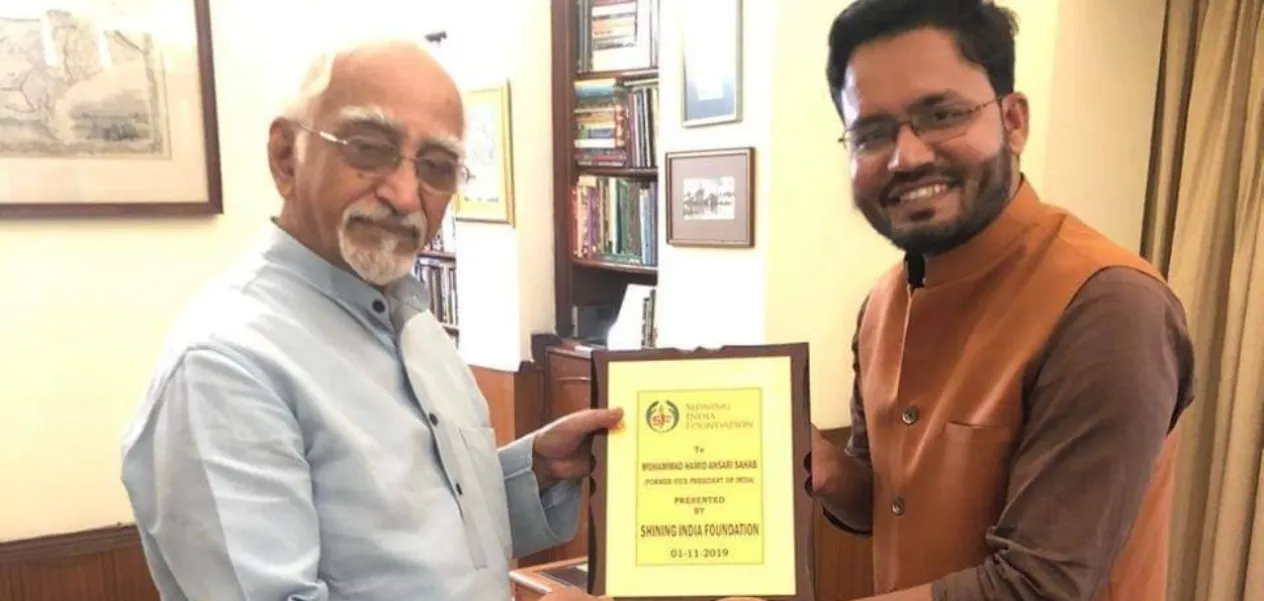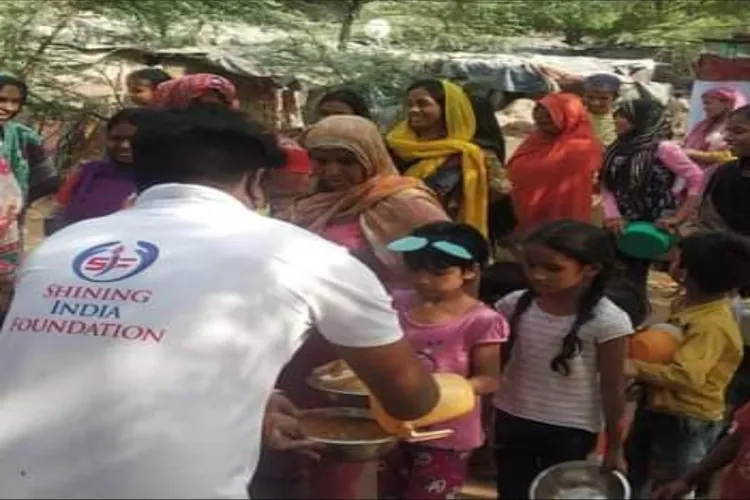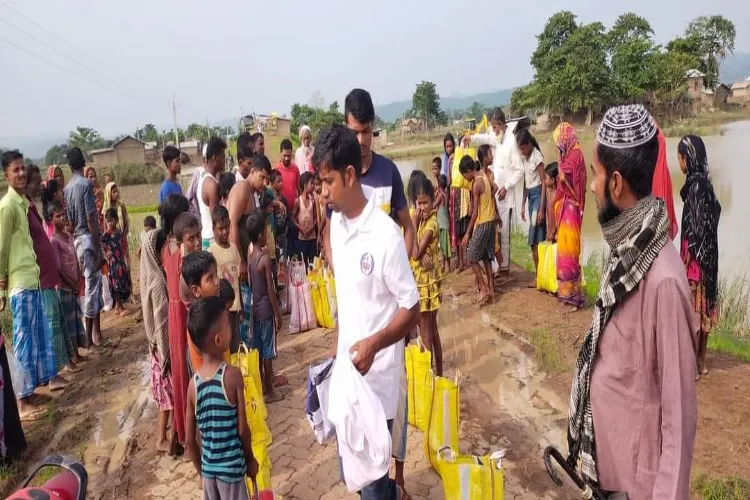
Sumana Mukherjee / New Delhi
Riyaz played in the green alleys of his serene village in Bihar till one day his father suddenly passed away and he was burdened with family responsibilities. His father’s loss marked the end of his childhood.
Riyaz hardly knew what could it take to run a family, and only understood that he should earn money for his mother and other siblings. The 12-year-old Riyaz had to leave his school, mother, village, and roots to come to Delhi in search of a job.
As luck would have it, Riyaz’s childhood friend Nadeem was also going through an adverse phase in his life. Nadeem’s father was not keeping well for long. He was no longer working and the family plunged into extreme poverty.
Nadeem also had to don the mantle of the family’s sole breadwinner. Both Nadeem and Riyaz started working in a small hotel in Delhi. They worked almost round the clock to earn for their families back home.
Both the children could simply be lost amidst the bursting crowds of the metropolis if they were not noticed by one of the team members of Shinning India Foundation- an organization that works to revive the lives of child labours.
Talking with Awaz-the Voice, M Ghazi, Chairperson of Shinning India Foundation said that Nadeem and Riyaz were rescued from a Delhi-based hotel where they were being exploited. They were paid only Rs 3000 per month as remuneration for years.
The Foundation asked the hotel owner to send both of them along with few more child labours to a part-time tutoring class where many deprived children come for elementary education.
“Going back in 2018-2019, I remember those boys were quite brilliant and we decided to arrange some vocational trainings for them so that they could come out of slavery and get their breaths back once again.”
He added “Their lives transformed miraculously when we decided to train them as tailors for the long run. Both left their hotel job and worked with a veteran lady tailor for two years to turn expert tailors. Fortunately, they could go back to their roots and started working as independent tailors in their village and earn around Rs 30,000 per month”.
.webp)
He also said “Both of them are so happy to get back to their roots and their respective families. At least we can say that at the cost of lost childhood, they have earned respect.
Explaining about the idea of establishing the foundation, Ghazi said that he also belonged to a remote village in Kishangaunge, Bihar, He started philanthropic work along with some friends in 2013 when he was a student of Political science in Jamia Milia Islamia.
It was his primary object to be the redeemer for the children who were deprived of basic education due to extreme poverty.
“When I used to see children being exploited, tortured, abused, forced to have rotten food, and made to sleep inside dirty store rooms, I could feel their pain. I had a very strong urge to do something for them. Childhood is the most precious gift and children must enjoy their growing years and cheer up while supporting their families.”

Shinning India Foundation was established in the year 2017 to eradicate child labour and for disaster management as well.
M Ghazi recalled; that it was during the COVID period when the team members worked like warriors. He described that a locality called Batla House near Jamia Milia Islamia was badly affected during the pandemic. In that locality, a building was completely isolated and barricaded by the police after a young man was diagnosed with Coronavirus.
The infected man was living with two more friends and nobody was ready to bring them foodstuff, water, and other essentials. Not even the police came to their rescue. It was the Shining India Foundation volunteers who rushed to their place with food, etc. The foundation saved three young lives and after this experience, they launched their rescue mission.
.webp)
They extended helping hands to factory workers, daily-wage earners, rickshaw pullers, and street dwellers who were unable to earn their livings during the lockdown period in Delhi. The foundation started an open kitchen to serve cooked food twice a day to such people and they continued the service for 6 months.
Ghazi said, “Serving cooked food to poor families was our basic target during the deadly days of the Pandemic. It was not aid but it was a kind of benevolent support that we could offer each other for survival. When the strict lockdown period was over, our organization decided to distribute rations among the poor workers, daily-wage earners, rickshaw pullers, helpless senior citizens, and those who lost jobs during the lockdown period and it continued for the next 2 years.”

The Foundation also works in remote villages of Assam and Bihar during floods where they provide food, water, medicines, and temporary shelters to marooned people.
Shining India Foundation is working sincerely to spread literacy among children of underprivileged families who hardly afford to pay school fees for their kids. They have opened up 4 schools for slum children as formal school education and vocational training both are their priorities.
While speaking with Awaz-the Voice Ghazi, said “It is my dream to educate every deprived child and we are developing our communications with Government schools so that these kids may get admitted shortly for board-level studies. we are also emphasizing on Vocational training which is very much required for their employment opportunities.”
They are covering the slum areas of Shaheen Bag and Islampur in Delhi. Children living in those localities are responding pleasantly and they are showing interest in studies.
Shinning India Foundation does not accept any grant from any organization or individuals.
He said “All financial backup whether it is in education, health or disaster is supported by its Honorary president Afzal Popat. Without his help and support it would not be possible for us to go such a long way.”
M Ghazi also spoke about his team, he said “I am thankful to all my team members whose relentless efforts are shaping the future of the downtrodden, deprived children and paving the way for a brighter tomorrow, a brighter nation.”
